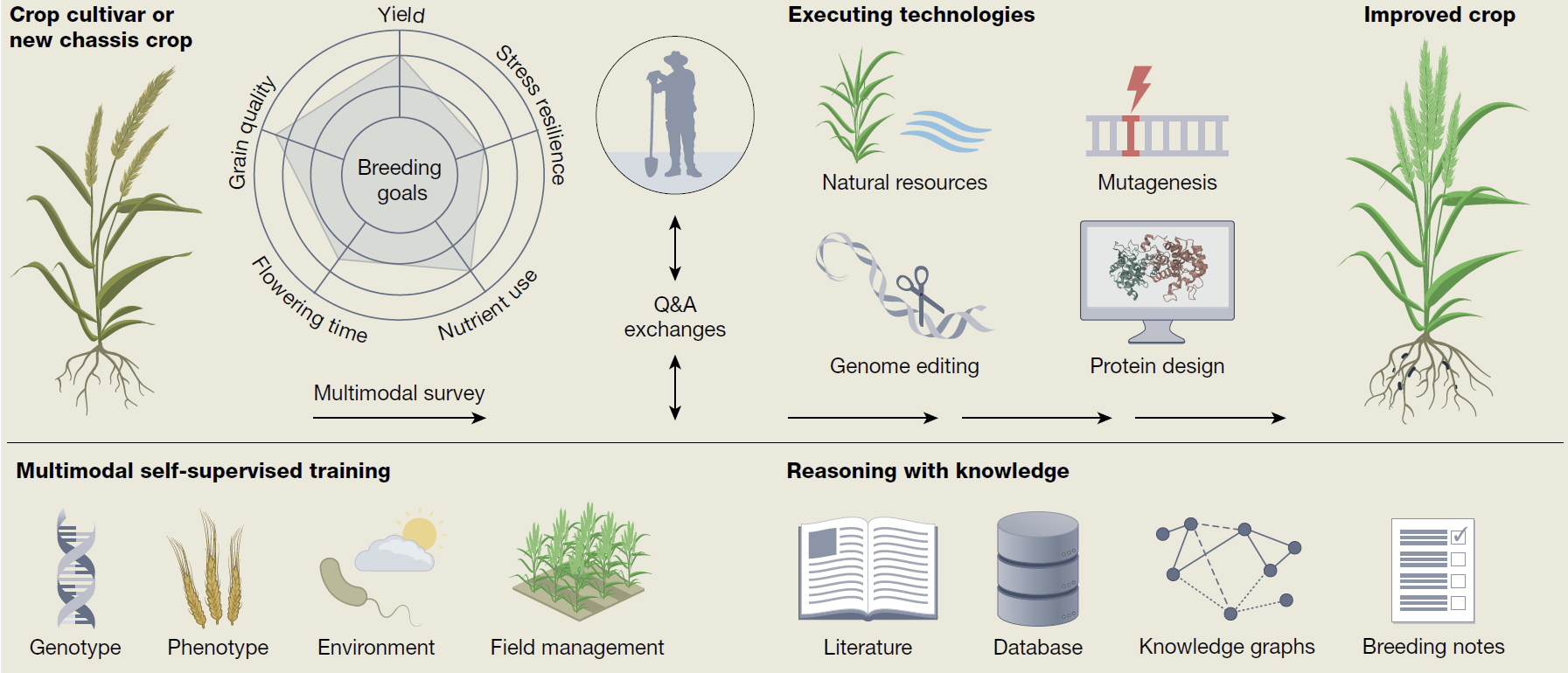Confronting the escalating global food supply crisis, a newly published literature review by Prof. Caixia Gao and collaborators (https://doi.org/10.1038/s41586-025-09122-8, July 24) has proposed an insightful framework integrating biotechnology and artificial intelligence (AI) to revolutionize crop breeding.
Rapid population growth, escalating climate impacts, and diminishing arable land pose escalating threats to global food security. To address these challenges, Dr. Gao et al. presented a comprehensive analysis of the current integrated applications of omics technologies, genome editing, protein design, and high-throughput phenotyping (HTP) in crop improvement, facilitated by artificial intelligence-enabled tools. Contemporary omics technologies serve as foundational components within plant biology and crop improvement. Specifically, genomics, metabolomics, and single-cell omics are routinely employed to elucidate the genetic and biological mechanisms underpinning complex crop traits, thereby revealing novel targets for trait enhancement. Concurrently, HTP technologies—utilizing drones, sensors, and automated platforms—facilitate more rapid and precise phenotypic assessments
Furthermore, this review underscores cutting-edge technologies for crop improvement. Notably, CRISPR-based genome editing not only delivers highly efficient and accurate genome modification but also substantially shortens conventional breeding cycles and expedites the accumulation of desirable traits. Meanwhile, AI-driven protein design has emerged as a transformative methodology, enabling the de novo generation of functional proteins absent in nature. These innovations advance the development of novel disease-resistance proteins and real-time biosensors for crop monitoring, ultimately conferring crops with sophisticated and adaptive characteristics.
Finally, the authors propose an integrative "AI-assisted crop design" paradigm. This framework envisions deploying artificial intelligence to analyze multimodal big data derived from genomic, phenotypic, environmental, and agronomic sources. Breeders could specify precise requirements—including yield enhancement, stress resistance, or nutritional quality improvement—whereupon AI systems would generate optimized breeding strategies through deep learning and inference. This data-driven model signifies a paradigm shift from traditional, experience-based breeding toward precision crop design, thereby establishing a strategic and actionable roadmap for sustainable agriculture's future.
This review was co-corresponded by Prof. Caixia Gao (Chinese Academy of Sciences, China) and Prof. Guotian Li (Huazhong Agricultural University, China), with other co-authors. The work was supported by the National Key Research and Development Program of China, the Biological Breeding National Science and Technology Major Project the National Natural Science Foundation of China, the Ministry of Agriculture and Rural Affairs of China, the New Cornerstone Science Foundation, and international funding agencies including the UKRI-BBSRC and the Bill & Melinda Gates Foundation.
 Figure: Research framework for AI-assisted crop design
Figure: Research framework for AI-assisted crop design
附件:
